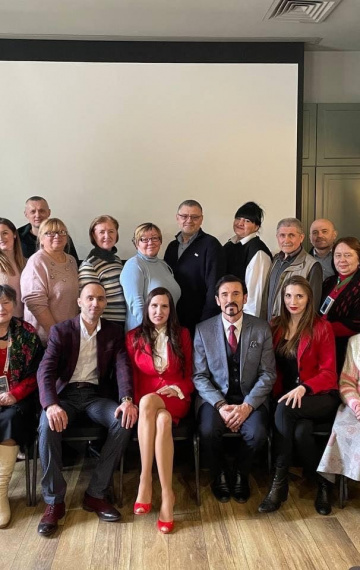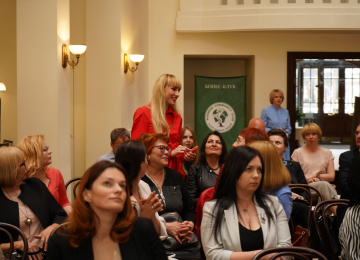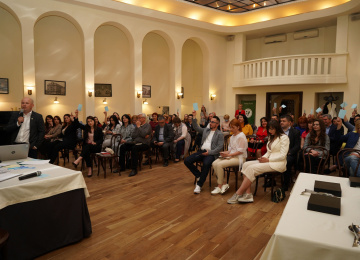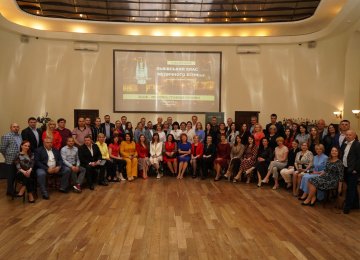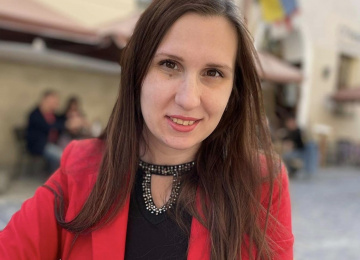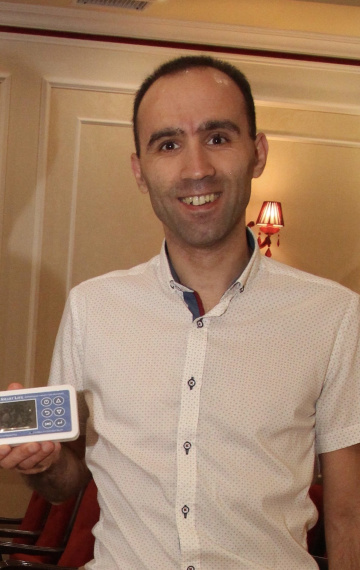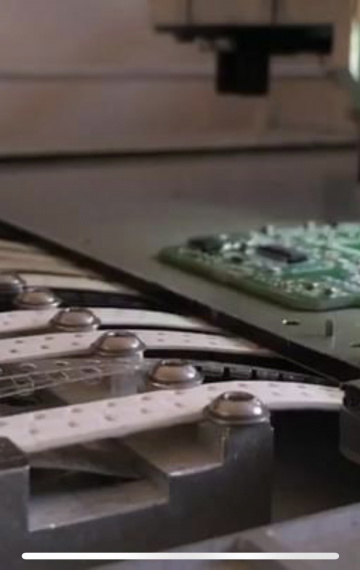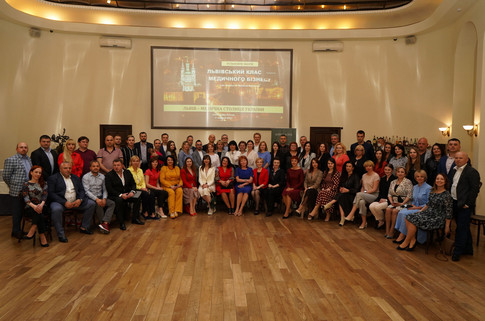
A vision of life free of medication and disease: That’s all Olesya Khaletska had when she started her own company at the age of 23, without much capital, experience, or expertise. At first, it was just Olesya and her husband, Valentin Khaletskyi, in the company. Years of hard work and persistence later, they have created a whole network of medical centres and an effective support system for their clients.
Today, Khaletska’s company, Insuria LLC, manufactures and distributes portable, contactless devices for treatment, health, and preventive care. The company focuses on a range of therapies, including light, laser, and quantum therapies. One of its devices, under the brand Smarti System, is the Short Wellness Device, which contains 120 antiparasitic and therapeutic programmes focused on home treatment and prevention of some of the most common diseases. As a portable electromagnetic wave generator, it claims to offer antiparasitic and restorative therapy using resonant frequencies according to the methods of Rife, Clark, Voll, Schmidt, Morrel, and others.
Insuria LLC is well represented in Ukraine, with 24 partnership centres across the country, and two offices in Lviv. Over 30% of its products are exported.
At the time of Russia’s full-scale invasion of Ukraine, the company had already begun to enter foreign markets, with ongoing negotiations and partners in UK and India that were supposed to buy their products.
“The first 2-3 months of the war were very difficult, everything just stopped.” Khaletska says, noting the company had to work hard to convince partners all over again that it was safe to buy their products in wartime.
“The war forced us to take some steps back, which was a big challenge for the company.”
To boost the local market in Ukraine during the war, the company also started to make lower-priced models of its products. As life slowly returns back to normal, its clients are returning, and the company is moving forward again. But it will take a long time before Insuria LLC gets back to the position it was in before the COVID-19 pandemic and the war.
Clustering together
Through these difficult times, Khaletska has obtained support from the Lviv Medical Cluster, which has brought together over 40 medical organizations in Lviv with an ambitious goal – to make the city medical capital of Ukraine.
The idea of creating the cluster was born at the event "Market Trends in the Medical Industry" held as part of the COVID-19 Business Clinic initiative. The European Union and the German government, via the German federal company Deutsche Gesellschaft für Internationale Zusammenarbeit (GIZ) GmbH, launched the COVID-19 Business Clinics under the “EU4Business: SME Competitiveness and Internationalisation” programme.
The programme, co-financed by the EU and Germany, aims to create better conditions for small- and medium-sized Ukrainian enterprises by supporting innovations and stimulating exports – paving the way to sustainable and uniform economic growth.
Before the war, the cluster members could attend training sessions organized by the EU4Business programme and GIZ on various subjects, including cluster management, writing project proposals, and other useful topics.
The Lviv Medical Cluster shows how a community of like-minded professionals can work together for the common good. Since its creation, among other things the cluster has developed a code of ethics and corporate culture for Lviv medical businesses; launched regular educational and networking events (seminars, business visits, and workshops); started work on business opportunities for the development of medical tourism; launched a medical business training school, and offered business consultations.
Cluster members have taken part in many projects, training sessions, and activities – but that was before the war. With Russia’s full-scale invasion of Ukraine, the cluster was forced to stop working, as did some of its member companies.
Moving forward
Natalia Kasatkina, the owner of the Norimed Plus medical center and the chairman of the cluster, was one of those whose company was affected.
“My company, which focuses on neurological rehabilitation, also closed at the start of the war,” Kasatkina says. “I was working as a volunteer and suffered from back pain. It got me thinking, ‘Where do these people go if everything is closed?’”
Kasatkina, Khaletskaya, and other cluster members gathered for the first time three months after the beginning of the full-scale Russian invasion of Ukraine, hoping they would be able continue working and helping people.
“We were scared, not knowing how to proceed.” Kasatkina says. “And so we shared experience and information inside the cluster.”
Her company reopened soon after.
Khaletska remembers that first post-invasion meeting of the cluster fondly:
“It was a very warm and emotional meeting because all of us wanted to see each other so much,” she says. “It turned out that everyone was continuing with their work, everyone had plans for moving forward and saw their future in Ukraine.”
Khaletska notes that only a few of the medical business owners had closed their businesses, even though many of their employees had resigned and fled the country.
Kasatkina says the cluster now has huge potential for development as many businesses, including medical enterprises from various other regions of Ukraine, have moved to Lviv amid the war. Now they are supporting each other, and getting geared up to resume normal opertions, she says.
“We’re ready to restart.”
As for Insuria LLC, the company has big plans beyond further expansion in Ukraine: Its founders want to enter more markets outside the country – not only in the European Union, but far beyond.
“We also see a huge opportunities in Asia, as we already have many partners in South Korea.” Khaletska says.
“And there are very interested partners in the United States as well, who want to show that these technologies (used in our products) are valuable and can help people.”

